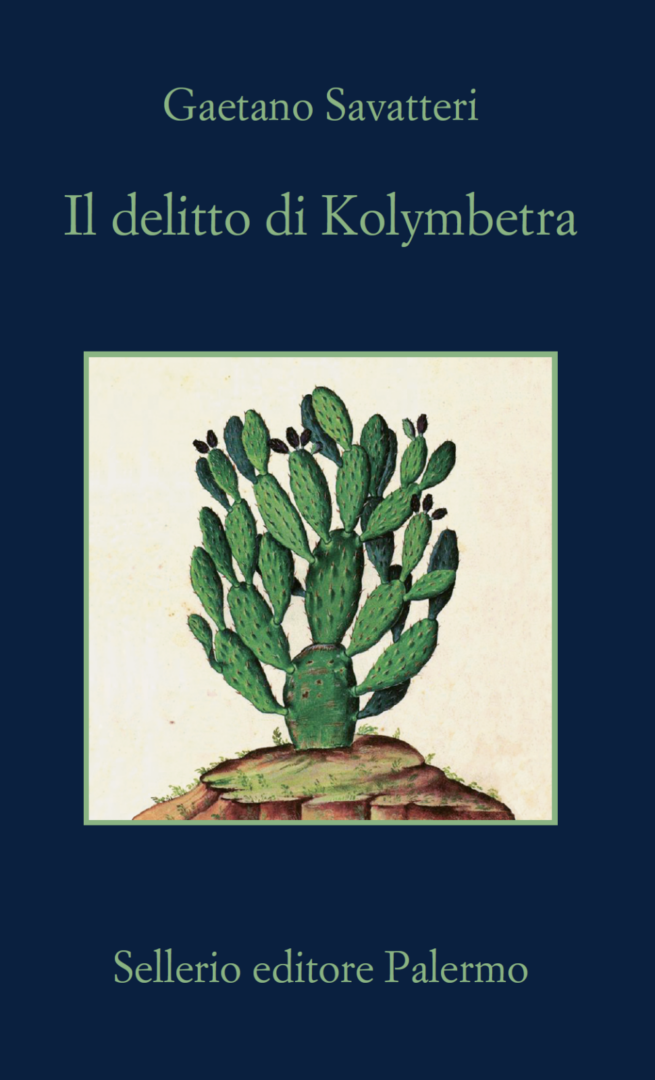Il delitto di Kolymbetra

Famous archaeologist Demetrio Alù is found murdered in Kolymbetra, the enchanted garden of Agrigento’s Valley of the Temples. An unexplained crime, consumed among almond trees, ruins and Saracen olive trees, under the indifferent gaze of the Temple of the Dioscuri. Alù’s death shakes the community of scholars gathered in Agrigento to solve a centuries-old question, the great mystery of the Valley: where to dig to find the ancient buried theater that has never come to light. “Yet it had to be there and a nice big one, too, since Akragas had three hundred thousand inhabitants and was one of the most important cities of Magna Graecia.”
Unemployed successful journalist Saverio Lamanna, away from his buen retiro in Màkari to report on an archaeological discovery, thus finds himself having to unravel the tangled skein of murder. Of quick intuition, with a chronic habit of irritating coldness, Lamanna travels with his friend Peppe Piccionello, who in turn must carry out a small, seemingly simple family matter: track down a young relative who has not heard from her for some time. Missing her and her husband? Almost. A strange, intermittent disappearance, very incomprehensible. A story that smacks of the Mafia.
But Lamanna’s disenchanted lucidity for the first time is clouded by some jealousy business. His girlfriend Suleima, an architect in Milan, has swooped into Agrigento, accompanied by the owner of the firm where she works. It will not be easy for Saverio Lamanna to continue to be irreverent and passionate, icastic and disenchanted as he conducts his svagate and tight-lipped investigations alongside Piccionello: two unintentional investigators endowed only with the weapons of intelligence and irony.
This second novel with the character of Xavier Lamanna (to which one must add the short stories in the various collections published by this publisher) is increasingly eventful and irreverent. The author uses a double narrative key. On the one hand, a nonstop humor, made of jokes and counter-senses that flog all the most pop clichés; on the other, a kind of “Sicily as metaphor,” a mirror of a world of inequalities and miseries. A fictional form of direct chronicle from the Island, of its wretchedness, its plagues, its daily sinking into the surreal that no one feels like noticing. Sicily à la Alfred Jarry: an absurd place within a fierce world.